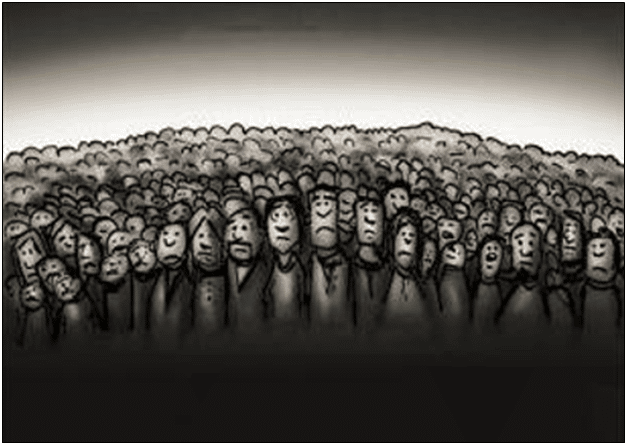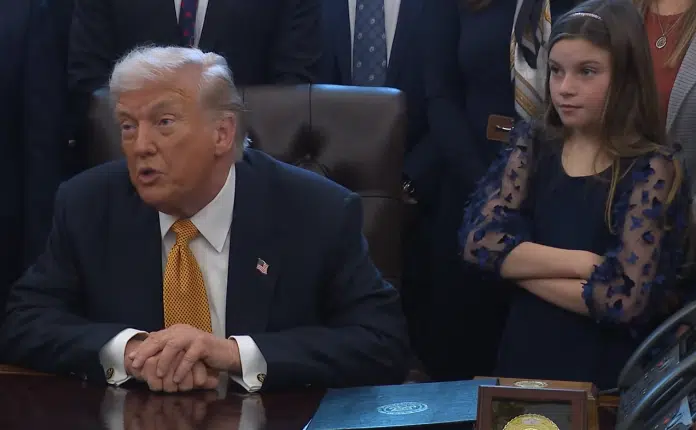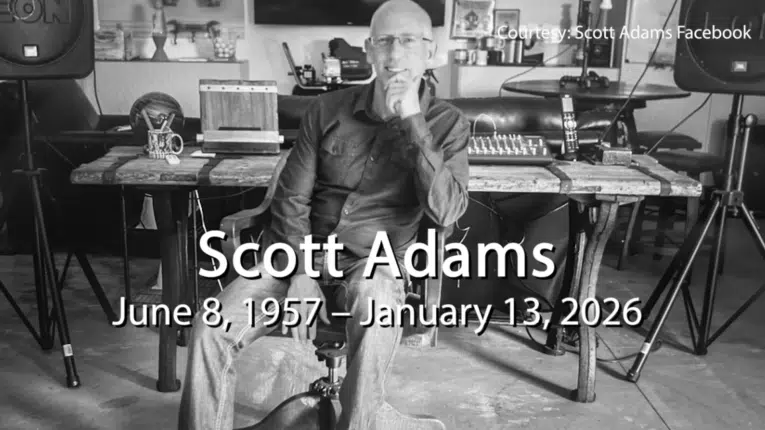
The pandemic years have all but disappeared from mainstream political discourse, which has now hinged onto the nebulous goal of “preserving democracy”.
Despite representing one of the most pivotal Black Swan events in modern history – maybe even in human history – the pandemic and its impact on culture has been relegated to an occasional footnote in modern politics.
The pandemic years not only cost millions of Americans their lives, relatives, jobs, homes, and sense of stability, they eroded personal freedom and rocked the Republic to its core. Under pandemic-era law, Americans were forced to remain in their homes and stripped of freedom of movement, assembly, and medical autonomy on and off over a span of three years. Americans were bullied, ridiculed, and pressured into accepting experimental medical treatments or risk social isolation and losing their livelihoods, and were forced to forgo such fundamental activities as outdoor exercise and seeing loved ones.
Despite ever expanding compliance mandates to “stop the spread”, the virus still wreaked havoc on human health and the economy and added several trillion dollars in spending to an already buckling federal budget.
Could it have been worse without the level of government intervention we experienced? Could it have been less destructive with less intervention? That is a debate for those dedicated to understanding the long-term implications of health and economics, and we may never get an answer.
The pandemic hangs in the collective consciousness, not as a distant memory but as a pivotal split in the trajectory of human history. It would be naïve to assume that the pandemic did not exert a powerful force on national – and global – politics. For a huge majority of Americans, the pandemic upended their entire lives – and that has not been corrected.
Americans for Limited Government Foundation noted last year that the pandemic appears to have pushed parents of school age children toward the right politically due to school closures and mask and vaccine mandates.
YouGov data shows Covid restrictions pushed by Democrats drove parents of school age children toward former President Donald Trump in the 2020 election, and that has continued to accelerate. Parents of school-age children supported Trump by a five-percentage-point margin, while voters without children or with grown children supported President Joe Biden by a six-percentage point margin. Parents support leftist measures like lockdowns and vaccine and mask mandates at between four to eleven percentage points less than non-parents, and among 2020 Biden voters, the disparity is even greater.
Now, there is strong emerging evidence that the pandemic years have substantially altered the political inclinations of another group of Americans – young adults. Gen Z spent the last few years of high school or first few years of adulthood navigating a thorny maze of post-pandemic challenges and restrictions and are now emerging into a dubious economic and political climate. A growing series of evidence suggests that the pandemic experience has pushed large subsections of Gen Z politically toward the right – and accelerated a rapid shift away from President Biden.
Eric Klinenberg, director of the Institute for Public Knowledge at New York University, recently penned a letter in Time chronicling the impact of the pandemic on Gen Z, and the political implications that have characterized the post-pandemic generation.
Klinenberg notes the themes of exasperation and exhaustion with the post-pandemic economy among Gen Z, and immense distrust in established political systems. He also warns that Gen Z’s political voice may be significant this election and may not swing in the direction Democrats would like.
Referring to the 2024 general election, Klinenberg writes: “But this year, as young adults who came of age in 2020 have become swing voters in the presidential election—with pollsters noting their surprisingly high levels of disengagement and an unexpected surge of support for Donald Trump—there’s an urgent need to understand how the pandemic shaped them. Our future may be in their hands.”
Klinenberg is correct. Assuming there will not be a tangible shift in collective thinking in the post-pandemic era is foolish, particularly when examining how other life-altering events – the Great Depression, Word War II, the Vietnam War, 9/11, the 2008 housing market crash – greatly impacted politics. How exactly the chips will fall in the post-pandemic period is yet to be seen, but there is strong evidence that leftist institutions have lost a great deal of credibility and revitalized a hunger for anti-establishment candidates.
Last October, a detailed swing state poll by Redfield & Wilton Strategies found President Biden on the brink of losing double-digits with Gen Z compared to 2020 exit polls. In 2020, Biden won a resounding 65% of 18–24-year-olds, yet he is polling well under 50% in multiple battleground states.
In North Carolina for example, the Redfield & Wilton poll found Zoomers plan to support Former President Trump by 29 percentage points, 55% to 26%. This is a substantial reversal from the 2020 election, when 18–24-year-olds in North Carolina supported Biden by 12 percentage points, 55% to 43%.
While none of the other swing states in the Redfield & Wilton data showed Trump outright winning the Gen Z vote in 2024, Zoomer support for Biden is down by double-digits from his 2020 numbers across the other five states – Arizona, Florida, Georgia, Michigan, and Pennsylvania.
For instance, in Georgia Biden won 56% of young voters in 2020, but only 39% are planning to support him according to the Redfield & Wilton data. This is a 17-percentage-point decline since 2020.
More recent battleground state polling from the New York Times shows a similar drop-off in support for Biden among young voters. The Times poll of six battleground states – Arizona, Georgia, Michigan, Nevada Pennsylvania, and Wisconsin – found Biden winning a scarce 47% of the vote from 18–29-year-olds. This is a nearly twenty-point decline for Biden compared to 2020.
A recent Morning Consult poll also finds that on key metrics, Gen Z voters trust Trump over Biden. Zoomers trust Trump over Biden to handle the immigration crisis by seven points, crime by ten points, and the economy by nearly 20 points. Unsurprisingly, Gen Z voters say the economy is the most important issue to them when choosing who to vote for this November.
The pandemic wrenched the entire country off course, but so did the reactions of mainstream institutions and politicians, and the latter has had long-lasting ramifications for public trust in authority. The public is collectively shaken and weary of consolidated political power after living through a state of borderline-fascism during the pandemic. The post-pandemic clobbering of the economy, record-high inflation, and an onslaught of illegal immigration have only intensified already brewing class divisions.
Young Americans are entering adulthood on the brink of a political and economic transfer of power. Gen Z had a pivotal period in their lives upended just as much by the way politicians and institutions handled the pandemic as they did by the pandemic itself. Seemingly steady political alliances – like that of young people and the Institutional Left – have been shaken, and a changing of the guard is underway.
Manzanita Miller is an associate analyst at Americans for Limited Government Foundation.






